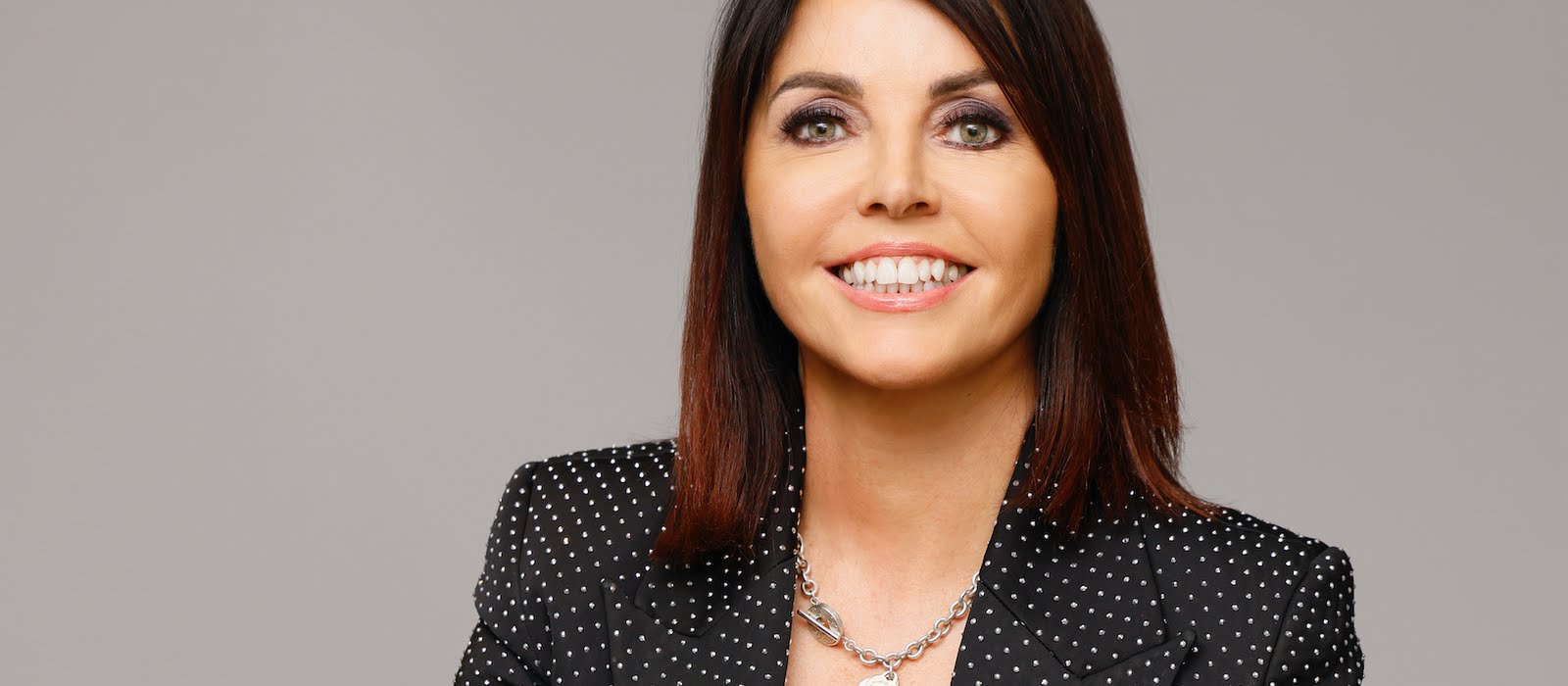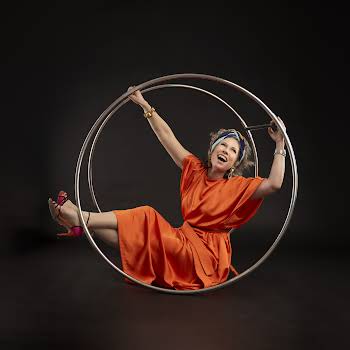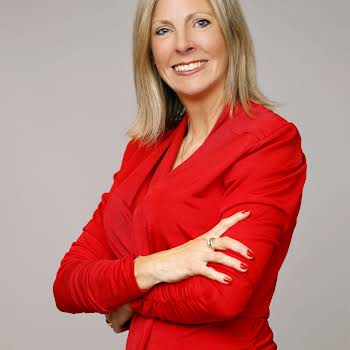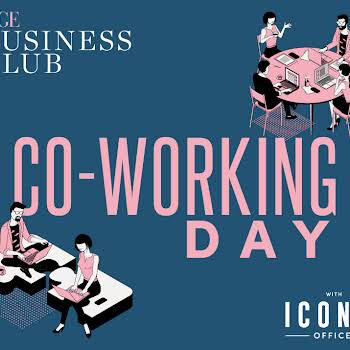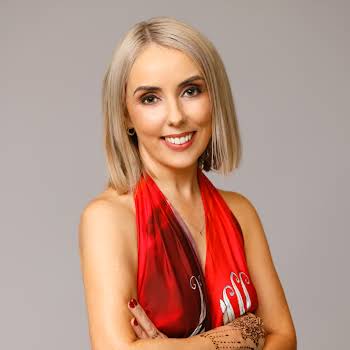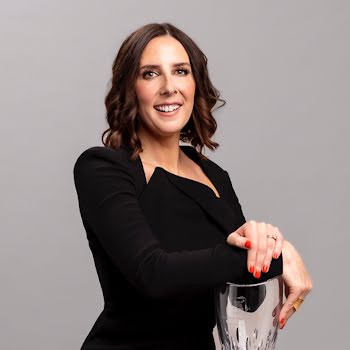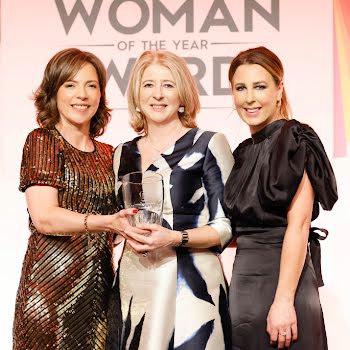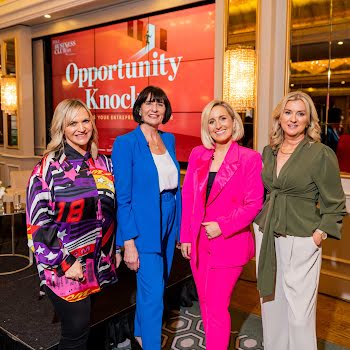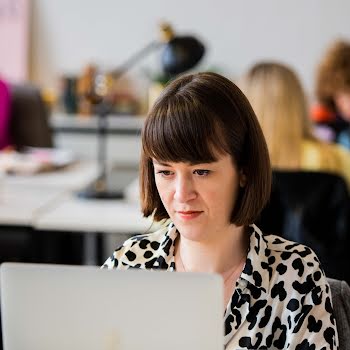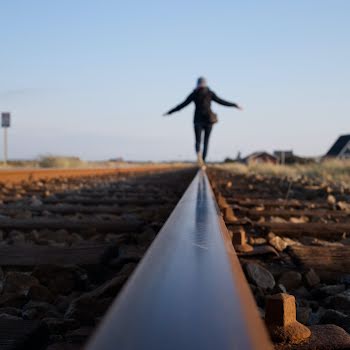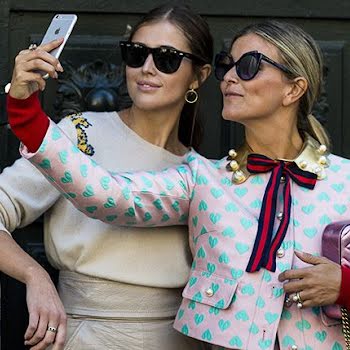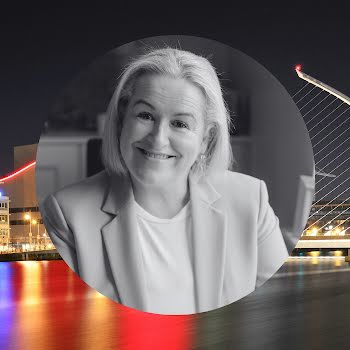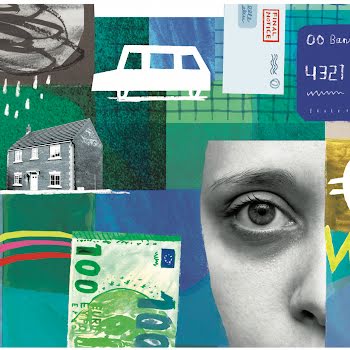
‘Who cares if you fail? You learn by your failures. We’ve tried loads of things and failed’


Entrepreneur Mairead Mackle oversees a host of different businesses - from homecare to housing and renewable energy to wagyu beef production, as well as a charitable foundation. Ian Kehoe speaks to the winner of the Entrepreneur of the Year category of this year’s IMAGE PwC Businesswoman of the Year Awards about what unites them all - a desire to have a positive social impact.
Even now, almost 30 years later, Mairead Mackle can still remember the sense of utter chaos.
A trained podiatrist, she had launched her own homecare business because jobs in her chosen profession were few and far between. (“I think I may have been bad at interviews,” she confides.)
She turned her home into an office, borrowed £10,000 from her local bank manager, and set about securing contracts from the state.
The days were long, and getting longer. The weekends were a blur. She had one infant, and another child on the way.
One of her motivations for launching her own business (aside from the necessity of a job) was to have her independence. Now, that independence had been eroded by her business.
Her husband, a cattle dealer (who had bought a farm in Texas when BSE had devastated the herd here), brought her back a book, ‘The E-Myth’ by Michael Gerber, from the US.
The more she read it, the more its key messages resonated.
Freedom and business
“If a business isn’t giving you more life, it’s taking your life away,” Mackle explains. “And if it doesn’t give you more freedom, it’s not a business at all, it’s only a really hard job. And I just felt I had a really hard job.”
If I work for more than 10 hours a week, then I’ve failed miserably.”
So, Mackle changed how she approached her business. She established departments, empowered others, and learned to become strategic.
“Once you take a Wagyu steak, you’ll not be going to a regular one.”
She set the vision and hired the right people to turn that vision into a reality.
Back then, Mackle was working 16-hour days. Now, her stated intention is to work 10-hour weeks.
“I remember hearing a dragon on Dragons Den saying that if you work more than 17 hours a week, you’ve failed. And I was thinking, that’s complete nonsense, a way back,” she said. “Now, I’m going for 10. If I work for more than 10 hours a week, then I’ve failed miserably. It means I need to employ somebody to do that job.”
Exiting the chaos has allowed Mackle to do what she wanted —to scale and expand the business into new areas, new territories, and new divisions. And that is what the entrepreneur has spent the last three decades doing.
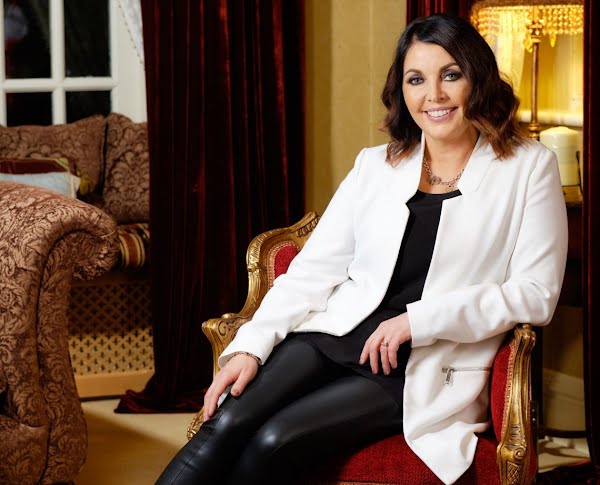
Tarasis Enterprises
At first inspection, it is difficult to trace the lines of the various divisions within Tarasis Enterprises, the Co Armagh-registered holding company for Mackle’s business empire.
However, the more Mackle explains it, the more it makes sense.
She started out with Homecare Living (since rebranded as Tarasis Healthcare). From its origins in her living room, the business now provides more than one million hours of in-home domiciliary care services to 60,000 people across Ireland each year.
This division led to another, Tarasis Housing, which provides thousands of crisis beds every night in Ireland, as well as producing eco-friendly, modular space solutions to help tackle housing shortages.
Mackle then began examining the socio-economic reasons people needed emergency beds. Tarasis Support Services was born, with the ambition of helping people not to become homeless.
In 2011, after selling some shares in her Homecare business (more of which later), she launched a renewable business that has since built two biomass plants.
All of our companies have that common thread of social impact. we make people’s lives better.”
And, this, led her to wagyu beef production — Kingsbury Wagyu now has a herd of 6,000 cattle, but Mackle said the plan was to increase this number to 20,000 (“It is sustainable beef production,” she says, adding: “Once you take a Wagyu steak, you’ll not be going to a regular one.”)
The list goes on. There is the charitable foundation, a programme for female entrepreneurs, and a host of board appointments and private investments. It is little surprise that Mackle has been awarded an MBE for services to business and charity. All told, the group employs 500 people and has offices in Armagh, Belfast, Newry, Sligo, Roscommon, and Dublin.
The common thread between all the divisions and side projects, she says, is values.
Mackle says the company had scaled successfully by being loyal to its values and its staff.
“All of our companies have that common thread of social impact. we make people’s lives better and, I really like that we have such an impact on people’s lives,” Mackle says.
“We have provided care for about 60,000 people. We provide 5,000 beds every single night for people in housing crisis.
“Yes, it is about innovation and looking for the next idea. Yes, it is about having the right people. But underneath all of it, it is about values.”
Mackle said the company had scaled successfully by being loyal to its values and its staff.
Plus, she says she and her team were always looking at opportunities to scale, particularly in those helter-skelter early days.
“It was sort of shoot first, ask questions later sort of mentality. The answer is yes, now what is the question? We had that ‘can do’ mentality, and we took a lot of risks. But it paid off. We didn’t really look at them as risks. I have the mentality that if you’re going to do it, you have to do it right. And then we scaled quite quickly and then got into housing and it scaled quite quickly as well,” she said.
‘A little bit crazy’
As the business has scaled, Mackle admits the risks have become more calculated, and more targeted.
“We have a great leadership team. Everything’s measured and targeted. We have put in place processes — predictable, scalable processes to provide predictable, scalable results. That’s just the way it has to be measured. If it’s not measured, it’s not done,” she said.
“You sort of need to be a little bit crazy to be in entrepreneurship. And you do take calculated risks, but you also have to be sort of willing to take risks as well, and some of them work out and some of them don’t. And you just sort of take the good with the bad.”
A social conscience
Mairead Mackle’s work, and her business philosophy, have not gone unnoticed, although in person, she is self-deprecating and down-to-earth. She has been awarded an MBE for her services to business and charity, while earlier this year, she won the Entrepreneur of the Year award at the IMAGE PwC Businesswoman of the Year Awards 2024.
In her citation at the awards, the judges noted: “Of personal importance to Mariead is not just to generate profit but also as a force for positive change. There are two not-for-profits within the organisation – the Evolve Academy which supports female start-ups and iCare, a charity to spread kindness.”
iCare was launched in 2011, and aims to help people in practical ways. It gives out uniform vouchers in local areas to those who need them most, and, each Christmas, gives out thousands of gifts to homeless famillies.
The Evolve Academy is creating the support network for our women.”
She set up the Evolve Academy to foster entrepreneurship among females, particularly those who want to scale their companies beyond lifestyle businesses. The academy runs from September to December every year and links up with local authorities, universities, and financial institutions.
“The Evolve Academy is really to learn from all my mistakes or experiences. And then we do a lot of mentoring and stuff like that. It’s just really creating the support network for our women. Because maybe traditionally it hasn’t been there, so it’s just a passion project of mine to make sure that women get that support network,” she said.
iCare and the academy are both by-products of Mackle’s leadership style and her business philosophy, which she describes as values-based leadership.
“You have 900 months in your life. You spend 300 of them sleeping. So you have 600 months to actually do something.”
Yes, she wants her companies to generate a profit. But, according to Mackle, the business needs to be more than just a generator of profit — “it needs to make a difference,” she said.
“Family values are more important to me than corporate culture.”
She has seen the difference first-hand. In 2011, she and her husband sold a stake in the homecare business to Allied, a British care provider that was taken over by German investor Aurelius in 2015.
It strangled the business, because we’re all about community, and they’re all about the bottom line.”
Mackle said there was a clash of values within the shareholders, and that she ultimately bought back their shares at a steep discount.
“I was in business with a corporate because they were listed on the American Stock Exchange. And then I realised then, or we all realised within our company, that we don’t want to be a corporate. We want to retain our family values and what happened was then we had to try and get rid of the investor,” Mackle said.
“So I bought them back a few years later — for 35 per cent of what I got for them — that was another story.”
Mackle has no intentions of going back into a business with a corporate again. “Been there, done that, bought the t-shirt. Some people like that. That’s fine. That wouldn’t be for me at all,” she said.
“It actually strangled the business, because we’re all about community, and they’re all about the bottom line. And they have to be. I mean, that’s their culture because they’ve shareholders to answer to. I’d rather just paddle my own canoe.”
Leadership and the future
Mackle might be a proponent of values-based leadership and social impact. But, she also keeps a stringent eye on growth.
In her view, if you are not growing, you are dying, and you constantly need to develop new revenue streams. It is something she has instilled in her own enterprises and espouses to the various young entrepreneurs that she mentors and to the companies that she has backed.
Family values are more important to me than corporate culture.”
“You can’t be standing still in business. I think that’s important. You always have to be innovative — whatever you’re doing this year has to be at least 20 per cent of your business has to be different next year,” she said.
This is one of the reasons that she has diversified into renewables, and also in sustainable beef production. The latter is operating from farms in Armagh and Monaghan, and has been self-funded by Mackle and her husband.
“It is not always straightforward. It’s getting customers and building that up. But it is a premium product, and it is sought after. And it is, like, quite a niche market, but we’re very proud of our product and what we’ve created,” she said.
It is a passion project, but one she believes will deliver a profit.
Another passion project is restoring listed buildings, and she has several properties being redeveloped at present.
The diverse range of interests, she says, is facilitated by an empowered management team.
“Get good people around you and let those people create that reality and let them get on with it. And what I find within our different divisions and different businesses is we have fantastic leaders but I don’t micromanage them. I let them lead their own way. And I think that just works for us,” Mackle said.
The aim, she said, was to build a business that could run without her — not that she has any intention of selling any time soon.
“Tarasis Enterprises can run without me now. I’m not tempted to sell it because we enjoy it and we’re a family. Our leadership team have been with me for 15, 20 years and we’re all together.”
She added: “There’s so much opportunity for people. Because some people think all the good ideas are gone. But I think that there’s never been more opportunity. I think we could start ten different businesses in the morning if we had the funding. There’s so much opportunity out there for young people, which is great.”
She accepts that fear prevents people from taking the entrepreneurial leap. But this is something she is working to dispel.
Get good people around you . . . and let them get on with it.”
“You have 900 months in your life. You spend 300 of them sleeping. So you have 600 months to actually do something. So what’s the point of sitting at home worrying that it’s going to fail? If you don’t try, you fail by default. If you have a passion for something, take that step forward and do it,” she said.
“I suppose women can be afraid to take that chance into business, but what’s the worst that can happen? Who cares if you fail? You learn by your failures. We’ve tried loads of things and failed. And you learn more from your failures than you do from your successes.”
This is the fifth in a series of articles written in collaboration with The Currency. Chief Executive of The Currency, Tom Lyons, was a judge at the annual IMAGE PwC Businesswoman of the Year Awards.
Become an annual member of The Currency today and get unrivalled daily coverage of Irish business, finance and economics. Get access to more than 6,000 unique interviews, investigations, columns, and features, as well as 380 original podcasts – plus all new content for the next 12 months.
Online-only and subscription-only, we examine the sectors, people, and companies that matter. Members also get access to regular events with business leaders, policymakers and opinion shapers; often in collaboration with blue chip partners.
Join The Currency today with the code IMAGE10 and for 10% off annual membership.

The IMAGE Business Club is building a supportive and empowering community of women in business in Ireland by delivering the Network, the Expertise and the Knowledge they need to thrive. We are delighted to partner with the Currency in this series of interviews and in offering the IMAGE community an exclusive 10% discount on an annual subscription.











